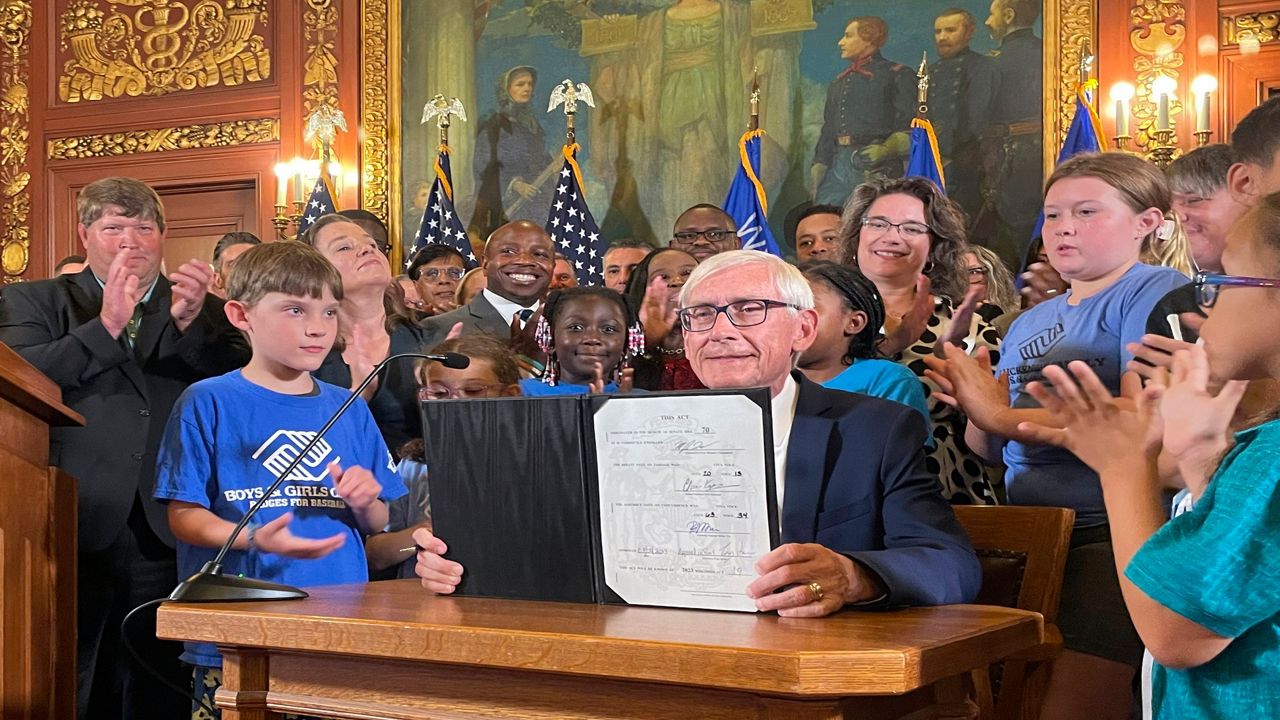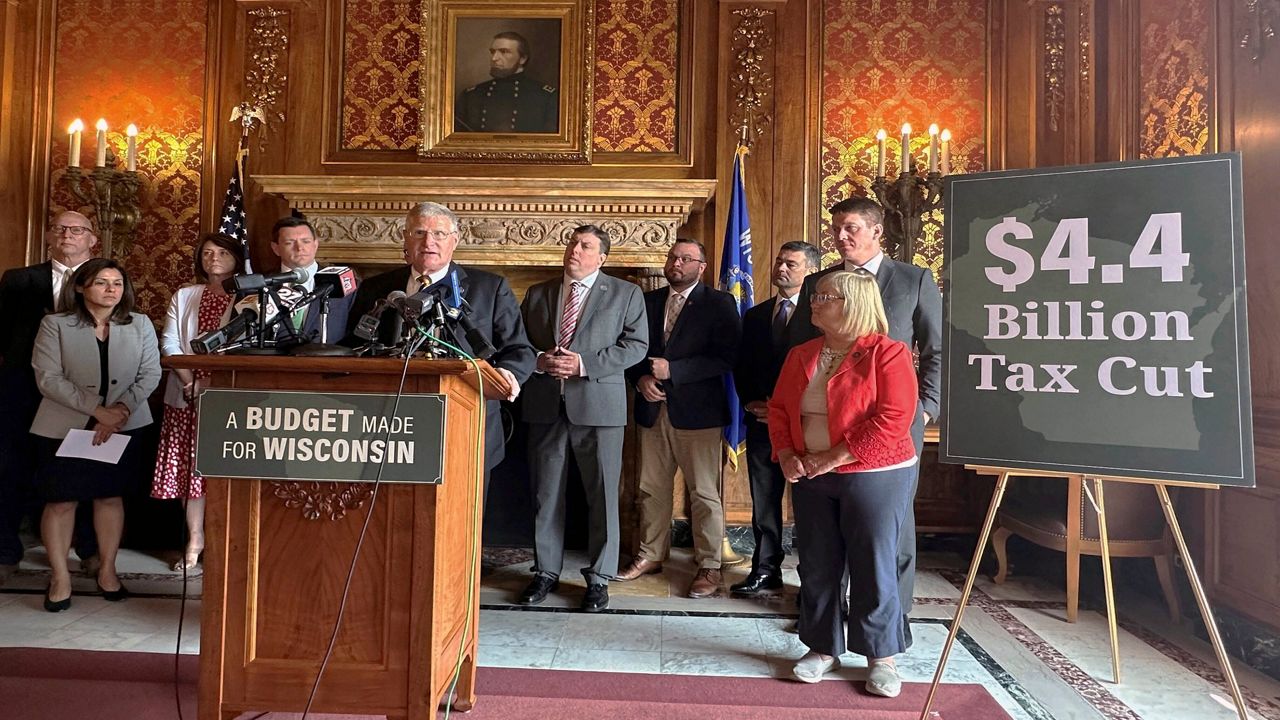MADISON, Wis. — Your state income taxes will drop by a few dollars per month on average after Gov. Tony Evers used the power of his veto pen last week to scale back the tax relief provisions Republicans had included the budget.
The procedural move could now be setting up a battle over future budgets.
According to the state’s nonpartisan Legislative Fiscal Bureau (LFB), the average tax cut for Wisconsinites will amount to $36 under the budget the governor signed into law last week.
By comparison, taxes would have been cut by an average of $573 under the plan the Republican-controlled Legislature passed as part of the spending bill.
The governor exercised his broad line-item veto power to reduce the size of relief for the two highest income brackets and took the GOP cut of $3.5 billion down to $175 million.
“There’s a tax cut for everyone, but someone who’s a millionaire is not going to get more than someone who’s a schoolteacher,” Jason Stein with the Wisconsin Policy Forum said.
Stein said even though there is night and day difference between what Republicans passed and what the governor signed, nearly two million tax filers will still see a modest decrease in their tax liability.
“When the governor removed that portion of the tax cut, most of the tax cut went with it because that’s how it was structured,” Stein explained. “There are significant tax cuts that are still in the budget. The budget will still have about a billion dollars of overall tax cuts, but most of that is property tax, and not income tax.”

During the budget signing ceremony last Wednesday, the governor stated that all income earners would see some tax relief.
“It’s my belief that the middle class in the state of Wisconsin is where we should be supporting those cuts in the most efficient way possible,” Gov. Evers responded when asked about his reduction to the income tax cuts.
Joint Finance Committee Republicans called the governor’s tax policies “misguided” and criticized him for not sending the surplus back to the taxpayers.
“This is not a middle-class tax cut,” Co-Chair Sen. Howard Marklein, R-Spring Green, said in a statement. “Instead, the Governor has decided that $2.7 billion should stay in Madison, rather than be sent back to you, the taxpayer.”

To override the veto, Republicans in the Assembly would need votes from Democrats, who didn’t support the budget when it passed, leaving leadership with the option of trying to pass another cut later this year.
“Right now, there’s still a lot of room for horse trading and negotiating and compromise, so we’ll see if that happens,” Stein added.
This week, the LFB projected Wisconsin would finish this biennium with a nearly $4 billion surplus after the governor vetoed a majority of the Republican tax cut.
With Democrats and Republicans so at odds over how to spend the most recent surplus, it seems there will be another one in two years if both sides cannot come to an agreement on how to spend the money before then.


